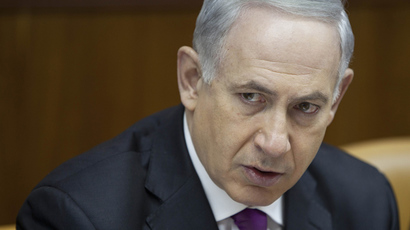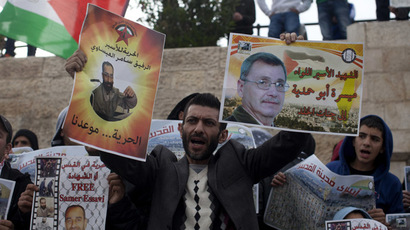‘Unprecedented’ Israeli settlement expansion could sink Palestinian peace talks
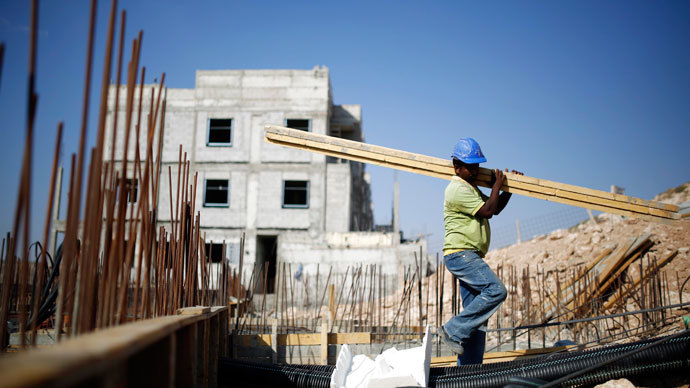
Israel has released 26 Palestinian prisoners on the eve of renewed Middle East peace negotiations. But Israel’s earlier announcement of new settlements for the West Bank and east Jerusalem challenges the outcome of the US-backed talks.
Israel released 26 Palestinian prisoners Tuesday night, as a sign
of good will. Eleven men were transported to the West Bank and 15
to Gaza. The buses bound for the Palestinian territories were
greeted by thousands of supporters.
Celebrations in honor of the prisoners exploded in the West Bank
and Gaza Strip, where crowds gathered to greet their heroes.
Fireworks erupted in Gaza, where both Hamas and Fatah supporters,
danced and drummed the night away.
Ramallah too became a huge scene for celebration where the
released prisoners were greeted by Palestinian President Mahmoud
Abbas at the presidential compound. The men also laid a
wreath at the resting place of Palestinian President Yasser
Arafat.
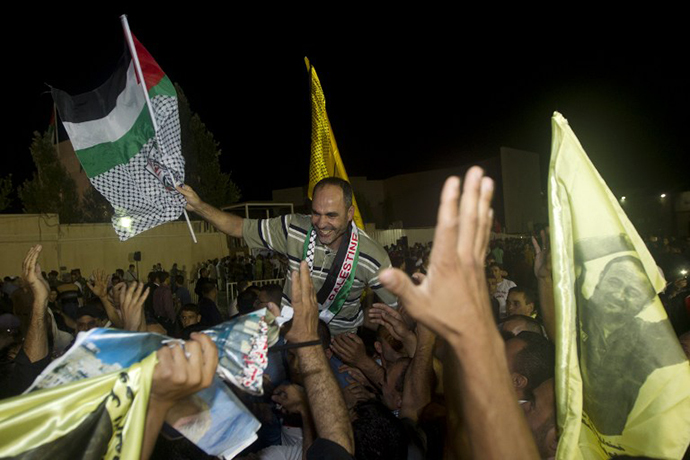
Abbas addressed the crowds and congratulated the prisoners saying
that he will "not rest until they are all released." There
are about 4,500 Palestinians in Israeli jails, of which Israel
promised to release 104 people. "You are just the beginning
and the rest will come," Abbas said.
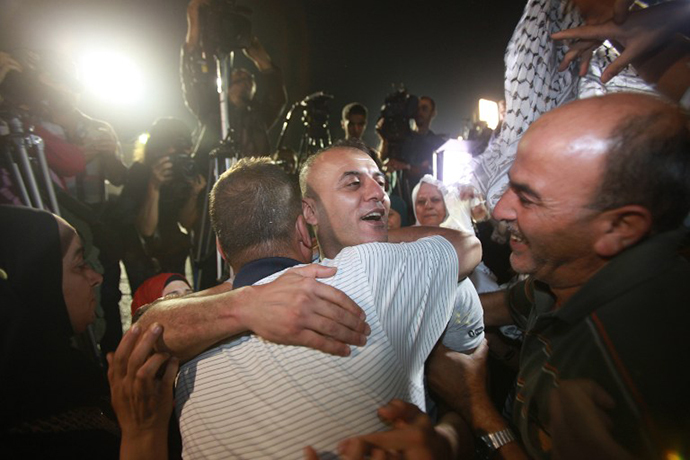
In other key developments US Secretary of State John Kerry, one
of the architect of the negotiations, said he had “frank and
open” discussions over the phone about settlements with
Israeli Prime Minister Benjamin Netanyahu.
US chief diplomat urged Israel not to make settlements
announcements while diplomatic process is underway but he doesn't
think they threaten the second round of talks scheduled for
Wednesday in Jerusalem.
Speaking at a press conference in Brazil, Kerry also said that
Palestinian Authority President, Mahmoud Abbas “is committed
to continuing to come to the negotiation because he believes that
negotiation is what will resolve this issue."
"Let me make it clear. The policy of the United States with
respect to all settlements, is that they are illegitimate,"
Kerry said, adding that “Prime Minister Benjamin Netanyahu was
completely up front with me and with president Abbas that he
would be announcing some additional (settlement) building in
places that will not affect the peace map, that will not have any
impact on the capacity to have a peace agreement," the US
chief diplomat said.
Earlier, a senior Palestinian authority member cautioned the
Israeli plans for more housing units on Palestinian claimed land,
warning that talks could collapse.
“Settlement expansion goes against the US administration's
pledges and threatens to cause the negotiations' collapse,”
Yasser Abed Rabbo told AFP.
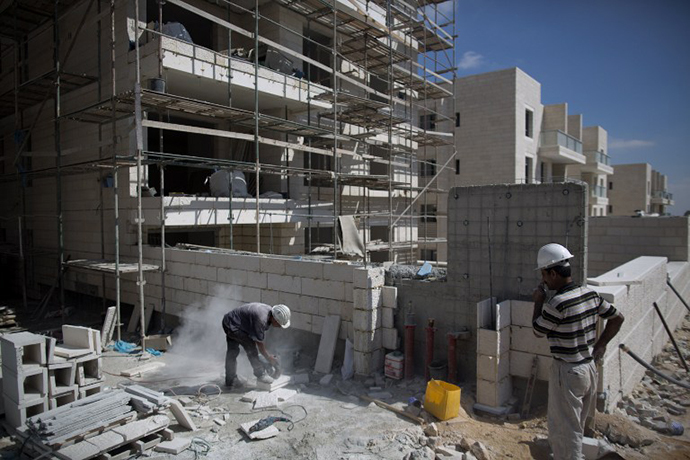
Abed Rabbo’s comment comes shortly after Israel’s approval of over 2,000 new settlement units on land claimed by the Palestinians as part of their future state.
Earlier in the week, the Israeli government backed the
construction of nearly 1,200 new apartments for Jewish
settlements in East Jerusalem and the West Bank. On Tuesday -
just a day before the scheduled new round of face-to-face talks
between Israelis and Palestinians – Jerusalem’s municipality
approved the construction of 942 other settlement units on the
lands occupied by Israelis since the 1967 Six-Day War.
“This settlement expansion is unprecedented,” Abed Rabbo
stated, adding that “it threatens to make talks fail even
before they've started.”
Another Palestinian official familiar with the negotiations
labeled the decision to approve “such a massive number of
housing units” days before the planned gathering “as
sick’’. The unnamed source, who spoke earlier with The
Christian Science Monitor, added that the Palestinians “may not
come” to the talks.
Three years ago, it was the dispute over the settlement building
in the occupied West Bank and Jerusalem that derailed the last
round of direct Israeli-Palestinian talks.
As key preconditions for the resumption of the face-to-face
talks, the Palestinian leadership had demanded a halt to the
settlement program and, also, the release of hundreds of inmates,
many of whom have been in Israeli jails since before the 1993
Oslo Peace accords.
Israeli Prime Minister Benjamin Netanyahu rejected the full
freeze. But after months of pressure from US diplomacy,
Palestinian leader Mahmoud Abbas agreed to drop this as a
condition for the resumption of peace talks, while Israel agreed
to release 104 Palestinian prisoners serving long sentences.

The decision to free the prisoners is unpopular in the country, as many of them are considered terrorists in Israel. The announcement was followed by two days of protests by victims’ relatives outside the Defense Ministry in Tel Aviv. According to Haaretz, 21 in the group were convicted of killing Israelis or collaborating with Palestinian militants, while others were involved in attempted murder or kidnapping.
In their homeland, by contrast, the convicts are seen as heroes
and their release scores political points to Abbas. However, the
Palestinian leadership is reportedly not completely satisfied
with the decision.
Abbas and Palestinian negotiator Saeb Erekat were particularly
angered by reports in the Israeli media that because of their
perceived security risk, some of the prisoners released in the
next three phases will be deported to the Gaza Strip or abroad
and not allowed to return to their homes in the West Bank,
Haaretz writes. The paper, citing senior Israeli and Palestinian
officials, writes that the Palestinian leadership told the US
they would not agree to the deportation.
The direct Israeli-Palestinian talks are expected to start on
Wednesday, with Israeli Justice Minister Tzipi Livni meeting
Palestinian Erekat in Jerusalem's King David Hotel. The talks
will be moderated by US envoy Martin Indyk.













